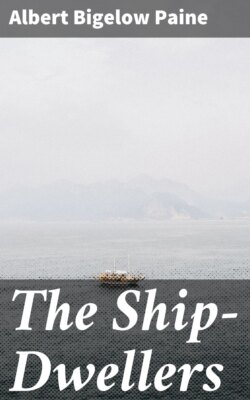Читать книгу The Ship-Dwellers - Albert Bigelow Paine - Страница 13
На сайте Литреса книга снята с продажи.
WE BECOME HISTORY
ОглавлениеTable of Contents
We had been four days at sea, boring our way into the sunrise at the rate of three hundred and sixty miles a day, when we met the "Great Sight"—the American fleet of sixteen ships of war returning from its cruise around the world.
It had been rumored among us when we left New York that there was a possibility of such a meeting. It was only a possibility, of course, for even a fleet is a mere speck on a wide waste of ocean, and with engines on both sides driving at full speed the chances of intersection were small.
So we went about figuring and speculating and worrying the officers, who were more anxious over the matter than we were, but conservative, nevertheless. We only learned, therefore, or rather we guessed, I think, that our Marconi flash was travelling out beyond the horizon, and the loneliest sea imaginable, trying to find an answering spark.
During the afternoon of the Sunday previously mentioned a sentence on the blackboard, the first official word, announced, with a German flavor, that it was "not quite impossible" that the meeting would occur next morning, and this we took to mean that wireless communication had been established, though we were not further informed.
There was a wild gale during the night and a heavy sea running at daybreak, but the sky was clear. A few stragglers were at early breakfast when, all at once, a roll of drums and a burst of martial music brought us to our feet.
We did not need any one to tell us what it meant. "The fleet!" came to every man's lips, and a moment later we were on deck. Not only those in the dining-room came. Sick or well, bundled together somehow, from every opening our excursionists staggered forth, and, climbing to the sun-deck, looked out across the bridge to where the sunrise had just filled the morning sky. There they were—far, faint, and blurred at first, but presently outlined clear—stretched across the glowing east, lifting and tossing out of the morning, our sixteen noble vessels on their homeward way!
At that moment I think there was not one on our ship who did not feel that whatever might come, now, the cruise was a success. Foreign lands would bring us grand sights, no doubt, but nothing that could equal this. We realized that, fully, and whispered our good-fortune to one another as we gazed out upon that spectacle of a lifetime.
Viewed across our bow, the vessels appeared to form a continuous straight line, but they divided into two sections as they came on, eight vessels in each, and passed in column formation. In a little while we were close to them—they were just under our starboard bow—their upper decks black with men turned out in our honor. We waved to them and our band played, but we did not cheer. We were too much impressed to be noisy, nor could we have made our voices heard across that wild shouting sea. So we only looked, and waved, and perhaps wiped our eyes, and some of us tried to photograph them.
They passed in perfect formation. Heavy seas broke over them, and every billow seemed to sweep their decks, but their lines varied not a point and the separating distances remained unchanged. So perfect was the alignment that each column became a single vessel when they had left us behind.
It was over, all too soon. Straight as an arrow those two noble lines pierced the western horizon, passed through it, and were gone. We went below then, to find chairs flying, crockery smashing, and state-rooms in a wreck. It was the rough day of the trip, but we declared that we did not mind it at all. By wireless we thanked Admiral Sperry, and wished him safe arrival home. Then presently he returned thanks, and good wishes for our journey in distant lands.
We meant to vote resolutions of gratitude to our captain that night at dinner for his skill in finding the fleet. But it was our rough day, as I have mentioned, and nobody was there to do it—at least, there was not enough for a real, first-class, able-bodied resolution. We did it next evening—that is, to-night. Between the asparagus and the pheasant we told him some of the nice things we thought of him, and ended up by drinking his health, standing, and by giving a great "Hoch soil er leben!" in real German fashion.
We were vain and set up, and why not? Had we not been the first Americans to give our fleet welcome home? We felt that we had become almost history.
